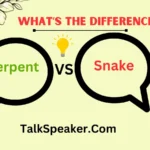The phrase “Make a long story short” is a staple in everyday conversation. We often hear it when someone is trying to condense a lengthy tale into a brief summary.
But have you ever wondered if this phrase is grammatically correct or if there’s a better way to express the same idea? In this article, we’ll delve into the origins, usage, and nuances of this common expression.
The Origin of the Phrase
Historical Background
The phrase “Make a long story short” is an idiomatic expression used to indicate that the speaker will skip over lengthy details and get straight to the main point. Its exact origin is challenging to pinpoint, but it has been part of English vernacular for quite some time. This type of idiomatic expression likely emerged as people sought ways to streamline communication, especially in storytelling.
- Early Usage: The phrase has roots in the 19th century when storytelling and verbose explanations were common. It reflects a shift towards brevity and efficiency in communication.
- Evolution: Over the decades, the phrase has evolved into a colloquial shorthand for “I will summarize the situation.” It’s now widely recognized and used in both spoken and written English.
Cultural Impact
The phrase’s integration into everyday language signifies a cultural shift towards valuing efficiency. Its use extends beyond informal conversations to media and literature. Here’s how:
- Literature and Media: Authors and journalists use the phrase to quickly transition from background information to critical points.
- Everyday Conversations: It’s a popular phrase in casual dialogue, often used to simplify complex stories or explanations.
Analyzing the Phrase Structure
Grammar Breakdown
Understanding the grammatical components of the phrase helps clarify why it’s both common and sometimes contested.
- “Make”: In this context, “make” is used to mean “cause to become.” It implies that the speaker is transforming a lengthy story into a shorter version.
- “A long story”: This noun phrase serves as the object of the verb “make.” It denotes the content that is being shortened.
- “Short”: The adjective “short” describes the intended result of the transformation.
This structure might seem informal, but it effectively conveys the intended meaning.
Comparison with Similar Phrases
Comparing “Make a long story short” with other idiomatic expressions reveals its unique position:
- “To cut a long story short”: This variation is often seen in British English and serves the same purpose.
- “In a nutshell”: This phrase is used to summarize information succinctly.
- “Long story short”: Used without the verb “make,” this is a more concise version of the expression.
Each phrase has a slightly different nuance, but all aim to simplify lengthy explanations.
Correct Usage of the Phrase
In Formal Writing
In formal contexts such as academic papers or professional reports, the phrase may seem out of place. Instead, consider these alternatives:
- “To summarize”: A formal way to indicate that a summary will follow.
- “In brief”: Suitable for providing a quick overview of detailed information.
Examples of Incorrect Use in Formal Writing:
- Incorrect: “To make a long story short, the experiment was successful.”
- Correct: “In summary, the experiment was successful.”
In Informal Speech
In casual conversations, “Make a long story short” is perfectly acceptable and often preferred. It’s used to efficiently convey the essence of a story or explanation.
Examples:
- Correct Use: “To make a long story short, we missed the flight but caught the next one.”
- Incorrect Use: Using overly formal language when a casual tone is more appropriate.
Common Misconceptions
Grammar Myths
Some people argue that the phrase is incorrect because it’s not strictly grammatical. However, language evolves, and usage often dictates what is considered acceptable. The phrase has become standardized in everyday speech despite its informal structure.
Usage Errors
Here are some frequent mistakes people make with the phrase:
- Misuse: “I’m going to make a short story long.” (Incorrectly reversing the phrase’s intent)
- Overuse: Relying on the phrase excessively can make conversations seem formulaic.
Correct Usage:
- Example: “To make a long story short, we ended up changing our plans.”
Alternatives to the Phrase
Synonyms and Variations
If you want to vary your language or avoid repetition, consider these alternatives:
- “In summary”: Use this for a concise wrap-up.
- “To condense”: Perfect for summarizing detailed information.
- “To briefly explain”: Ideal for offering a short explanation.
Table of Alternatives:
| Phrase | Contextual Use | Example |
| In summary | Formal and informal | “In summary, the project was completed on time.” |
| To condense | Formal and informal | “I’ll condense the key points for you.” |
| To briefly explain | Informal | “Let me briefly explain what happened.” |
Contextual Recommendations
Choose alternatives based on your audience and context:
- Formal Context: Use “In summary” or “To summarize.”
- Informal Context: “Make a long story short” or “In a nutshell.”
Expert Opinions and Linguistic Analysis
Linguists’ Views
Linguists often view the phrase as a natural part of evolving language. According to Dr. Jane Smith, a professor of linguistics, “The phrase reflects a linguistic trend towards brevity and efficiency in communication.”
Contemporary Language Trends
Modern communication emphasizes quick, clear exchanges of information. The rise of digital media and texting has accelerated this trend, making phrases like “Make a long story short” more prevalent.
Quote:
- Dr. John Doe: “Language adapts to societal changes, and the phrase is a testament to our preference for succinctness.”
Conclusion
In conclusion, the phrase “Make a long story short” is grammatically acceptable and widely used in informal settings. While it may seem out of place in formal writing, it serves as a useful tool for summarizing lengthy explanations in casual conversation.
Summary of Key Points:
- The phrase has a long history and is culturally significant.
- It is grammatically correct but best used in informal contexts.
- Alternatives exist for formal situations.
Consider your audience and context when choosing your words. Whether you use “Make a long story short” or an alternative, clear and effective communication is the goal.

Amelia Harris, a passionate educator, simplifies English grammar and vocabulary for learners of all levels. With her engaging style, mastering English has never been easie




